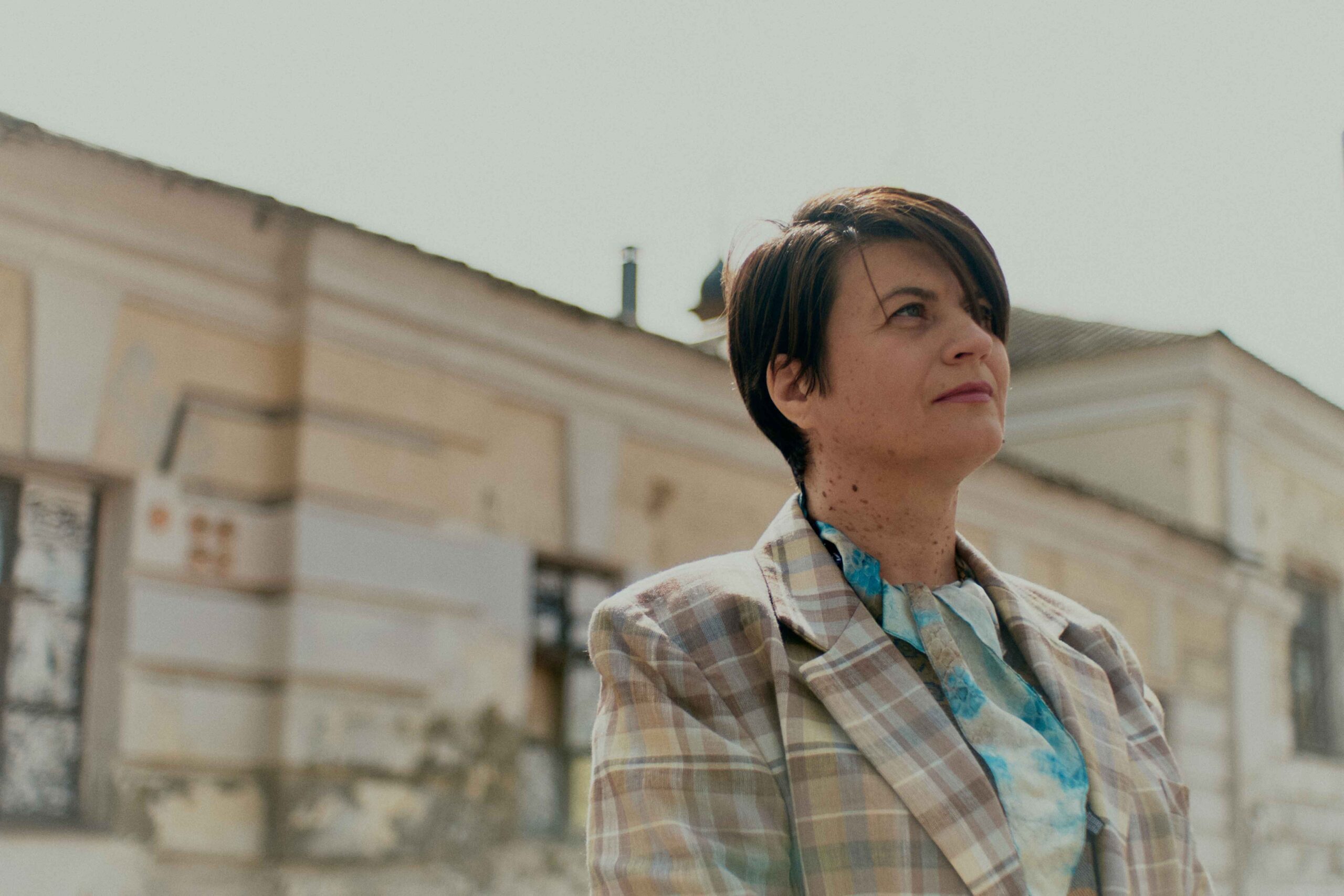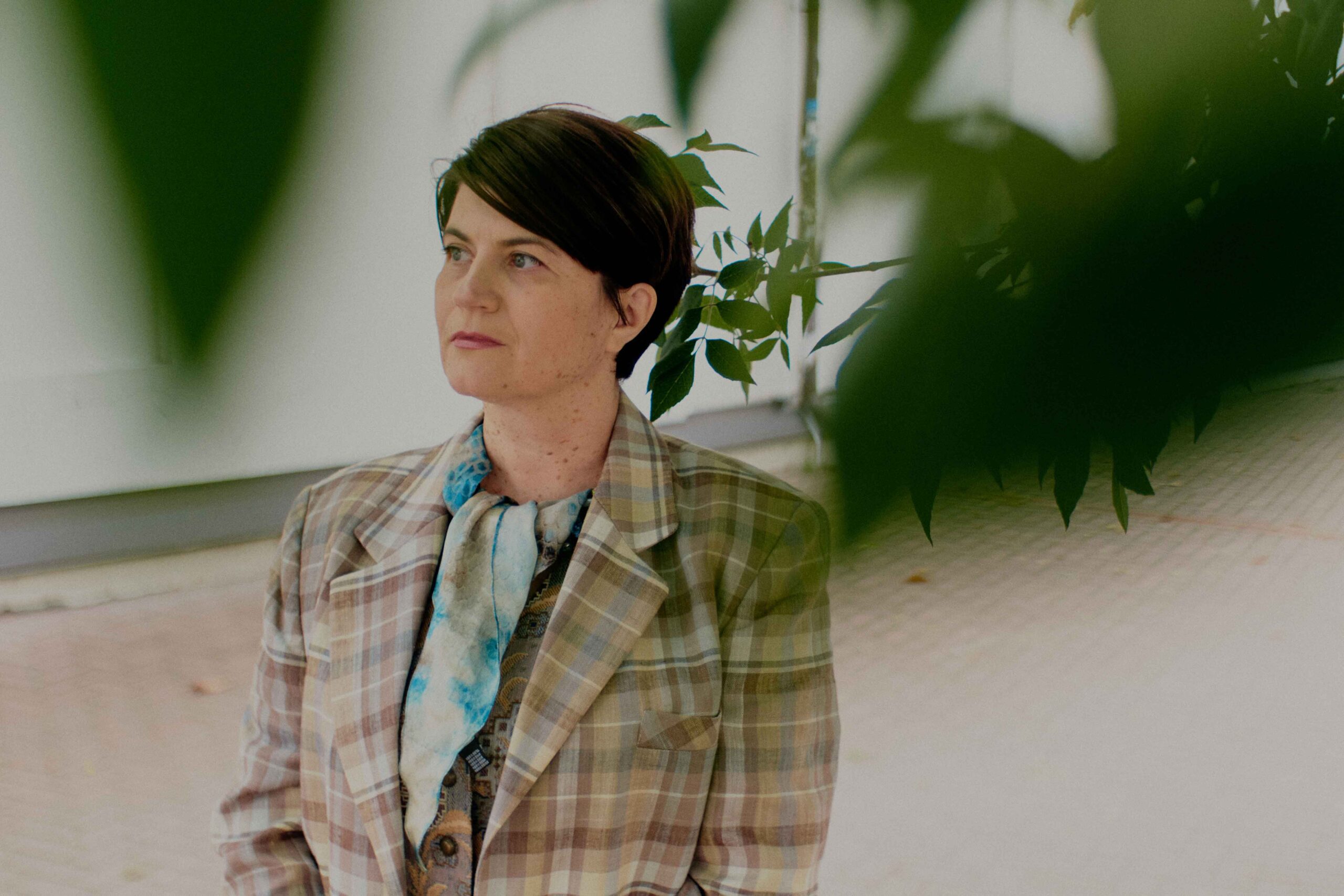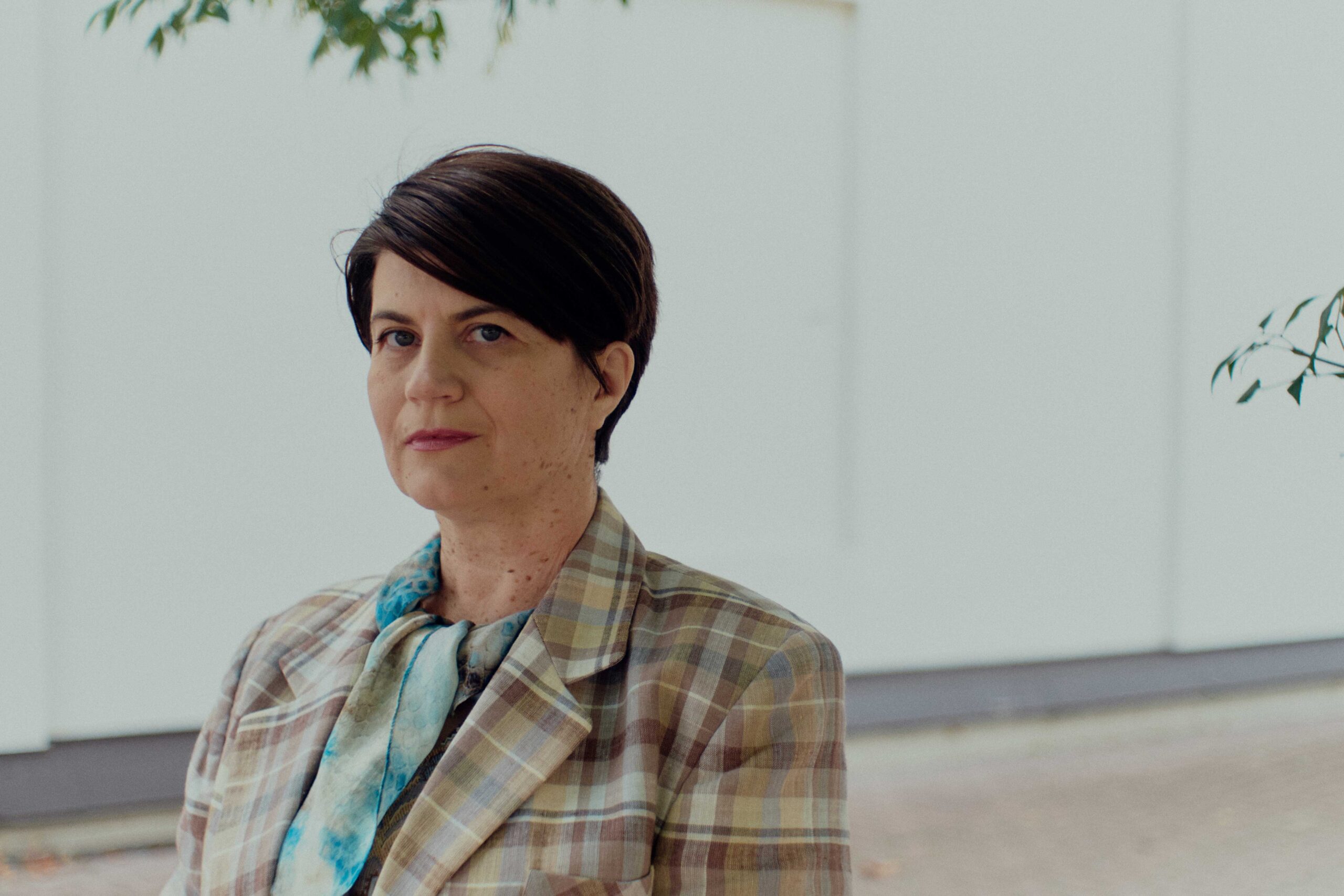Support Zaborona at this difficult time so that we can continue to inform you and record important stories.
In Ukraine and abroad, Larisa Denysenko is known as a writer, journalist, and lawyer. She has been focusing her work on human rights and their protection for many years. It did not change with the beginning of the full-scale Russian invasion of Ukraine: Denysenko, who previously worked a lot on domestic violence, now took up cases about rape during the war. Zaborona has already written about Russia’s use of sexualized violence as a military tactic, and about female specialists, who help survivors overcome trauma. This time, the editor-in-chief of Zaborona, Kateryna Sergatskova, spoke with Larisa Denysenko about how difficult it is to prove the guilt of the occupiers during the full-scale war and how the Ukrainian judicial system works today with such an array of cases about violence.
As someone who investigates war crimes, how do you feel about the rape situation in our country 6 months after the invasion?
For me, the front of sexual violence as a war crime opened at the end of March. Already in April, I understood that there would be a lot of work: the liberated occupied territories of the Sumy region, Chernihiv region, and Kyiv region demonstrate systematic and total violence as a tactical weapon of intimidation throughout Ukraine. The scale of war crimes is astounding—you have to choose what you want to answer for [as a human rights defender or a lawyer]. For me, this is sexual assault because it is relevant to my professional legal advocacy field.
I dealt with cases of domestic and sexual violence in peacetime and wartime when it was not yet declared war (I mean 2014 and the following years). It is logical to pick up this line of defense and try to stabilize the survivors. And, in fact, to build our justice system so that people feel justice. Will the process of justice succeed? Will the person or people who committed it to be apprehended and convicted (because war rapes are mostly gang rapes)? Will the command be condemned? It is essential for a person, but the most important thing is that the country supports him. Prosecutors and investigators can give this feeling of support for the country, lawyers who handle these cases and are also caring people.
-

Photo: Olya Koval
My work is not about collecting stories. My job is to listen and guide someone along the corridor they want to move. The corridor of justice is professionally vital to me. So that these cases were recorded, statements were written, the investigation continued, and, ultimately, the prosecutors prepared guilty verdicts, which would then be sent to the courts.
How many people who have faced rape by the Russian military have come to you personally?
Currently, up to 30 people. Now there are nine women with me: 8 adult women and one minor girl. I do not exclude the possibility that some of those 30 people will return. When the person does not respond, I always write a second letter stating they can apply again at any time. Since these crimes do not have a statute of limitations, they are not amnesty crimes. A person can turn to me when he feels ready and trusts the system or me personally. Often people who have gone through the Balkan war or the genocide in Rwanda feel willing to testify after 10-15 years.
Before the war, women or men who had experienced sexual violence were treated with prejudice. Will law enforcement and investigative bodies be able to investigate systemic rape without traumatizing the survivors?
In my experience, this treatment of victims of sexual violence by investigators, in particular, is often not even a matter of prejudice. Although this is also a problem because few people have been taught gender sensitivity, and a few find it acceptable. Both a prosecutor and an investigator say that this is psychology, that they are not ready for this, and that they need to investigate the case. They will ask questions that will help the investigation. It is a problem: the main goal of the investigator and the prosecutor. For the investigator, it means conducting effective research under the procedural guidance of the prosecutor. The prosecutor must prepare an indictment based on the findings, which he will send to the court.
They think less about how to speak carefully to a witness or a victim. They try to talk in a way that is considered more effective. Did the person remember [events] correctly? Can he describe [the criminal]? Can she even be regarded as an adequate person ready to testify, or perhaps they herself provoked such actions?
There are cases with which it will be difficult. For example, when a woman can offer or agree to sexual contact for medicine or save her family and herself. That is, she agrees to sexual violence. But it does not cease to be violence because a person is in a situation of double dominance and a threat to his life. It cannot be considered as obtaining certain benefits and advantages. I have two such cases. In one, a person categorically does not agree to speak because they feel guilty, although there is none. The system can increase this guilt because, in such cases, someone can say: “Wait, we have real rape victims, and then there are you. You were not forced to do this.” The concept of coercion during the occupation is already prescribed in international criminal law, but we are only now trying to master it and apply it.
-

Photo: Olya Koval
What has changed for the better is the instruction on conducting an interrogation, written together by psychologists, lawyers, and prosecutors, taking into account the UN protocols regarding conversations with survivors. When the document is well prepared, there is hope that interrogations and conversations with victims will become less traumatic. But, of course, there is a human factor. We are all shaped by different environments, and the victim can be questioned ten times for the sake of the result. However, as a justice system, we try to avoid retraumatizing or traumatizing the survivor. Ideally, they will only have one interview. We strive for it, but it doesn’t always happen like that.
Is it even possible to prove the rapist’s guilt in his physical absence? There is no access to him. How does this happen?
It is an absentee proceeding. There are already processes that treat rape as a war crime under Ukrainian criminal law. Proceedings in absentia also include sentencing in absentia. A person receives a sentence. It means that a person gets into the system. In fact, they will not be able to leave Russia [to Ukraine’s allied countries].
When the war ends with our victory or an agreement on our terms, it will be about carrying out this punishment. It is possible to follow another path – the path of international criminal justice. It is the International Criminal Court, where several cases of sexual violence can be connected in one line of the accusation. There we will talk not only about those who committed violence but also about the command that encouraged violence and then rewarded its army for atrocities and crimes. It can help draw a line to the commander-in-chief. And to the General Staff of the Russian Federation, the Minister of Defense, and, ultimately, the President.
There is a mechanism called “universal justice.” It means that a woman who is ready to talk about sexual violence but is now, for example, in Latvia or Slovakia, can, with the help of lawyers, apply to the jurisdiction of the country where she is. It may even be a less traumatic experience. As a system, we have not yet walked through such justice corridors.
-

Photo: Olya Koval
If the raped person does not have evidence and does not have the names of the perpetrators, how does everything happen in this case?
In this case, it is really difficult. The Russian army of occupation is diverse. I’m not particularly eager to discuss ethnic profiles, but they can help here. If a person speaks with a Caucasian accent, you can already understand which part was part of such and such a settlement at a particular time.
Memories are fragmentary – it is impossible to make a perfect photo robot. But the memory still throws up something: the manner of speaking, the voice. We even listened to voices from intercepted recordings of the SSU [to identify a specific person]. We listened to the voices of prisoners with whom [activist] Volodymyr Zolkin works to generally understand the manner of speech of a person born in Tula. That is, to understand and narrow the circle of [suspect] people.
When our troops entered the [de-occupied] city, a week had passed since [the act of rape]. Or two or three. The police are unable to inspect the scene. They work when there is not much left [of evidence]. Even this basement [where the violence took place] may no longer exist.
If we can’t find the people who did the violence directly, we must find the command. Who encourages sexual violence to intimidate the civilian population and demotivate the [Ukrainian] military? Who uses women’s bodies as a fighting tactic? It helps to indicate a commander.
To understand correctly: did the women, who approached you, do a police report? Is it being officially investigated? Do you do it privately? What is the status of these cases?
I now have only one survivor out of nine ready [for investigation] — we are collecting documents for the police. Most of them are all abroad, undergoing rehabilitation and [receiving] psychological help. I don’t push them to this decision [to go to the police]. I mainly try to find out on my own, with my resources, and sometimes with access to the crime scene. [Plus] testimony, additional questions, search for witnesses. We do this together with them.
One of my clients is from Kherson. Her story is very distinct – she knows the name and rank of the person who did this to her. But the problem is that her whole family remains there [in the occupation]. She managed to escape in April this year. It is a harrowing story. She is forced to constantly balance fear for her own, who remained there, and an extreme desire to punish the officer who did this. We can only hope that we will be able to save her family and get this officer in terms of justice. I do not exclude the possibility that he will be killed or the possibility that he has already left the country. When there is a connection with the family, we try not to ask many questions about whether he is still [in Kherson]. But as of May, he was there. Just passing by her house. But it’s already September. Therefore, it is a very shaky structure.
Not so long ago, a man who was a member of the Russian army, in particular, in the Kyiv region, left the military, left for Europe, and now, as a refugee, talks about the crimes of the Russian army. Do you trust such testimony? There is now a debate over whether to prosecute him as part of the army that launched the invasion, or to drop the charges in exchange for his testimony.
It depends on the circumstances: who can he lead to? If this testimony becomes a necessary piece of the puzzle in proving the guilt of the command, he may be amnestied. But only if he was not, in particular, a sexual rapist.
The occupation itself as a crime of aggression is a separate story. Sometimes the value of his testimony may outweigh [the fact of the intrusion]. But I’m not really sure what can be based on his testimony. They can be additional. But it is impossible to make a basis, a canvas of history because this person is in a vulnerable position in his way — he became a refugee. It is clear that he can build a story that portrays him as a victim of the system. But this is not the story of exposing corruption in the Russian army. These are war crimes, and he is still part of the aggression.
Building a criminal case based on his words is very naive — no one will do it. To use his words when checking [collected information about the crimes of the Russian Federation] — variability is possible here. But in general it is a very uncertain witness. A person who monetizes his aggression in another country does not look very convincing to the justice system.
-

Photo: Olya Koval
Do you trust the investigations of the crimes of the Russians, which are currently taking place in Ukraine? How well do you think we can handle it?
The system is overloaded — we were not prepared for such massive war crimes. I believe that every prosecutor, investigator, and police officer who deals with this needs psychological support. Not everyone has the opportunity to receive it, because the system was not ready for that.
But there is still a moment in our literacy and awareness of international humanitarian law. Even though the war has been going on since 2014, this is tough material. The sentences I have read are far from perfect. People from the system prepared them. I cannot close my eyes and say that the system works flawlessly. There are many questions. Like any branch of law, international humanitarian law has clear rules and procedures. They may seem outdated or not very effective to someone, but they are such and it should be taken into account.
However, now there is a positive moment: the prosecutor’s office has stopped being a printer for producing indictments. It is very important. People stopped rushing to cram justice down their throats with inefficiently and poorly prepared papers. But the current speed still does not give an opportunity to consult and think about how to make [the process] more competent. As a result, sometimes raw cases are thrown into court, and raw processes are also going on in some places.
I hope that the system will gradually take a more responsible approach to such cases and that there will be an international criminal court. There is another procedure with which human rights organizations help. I have more expectations about the honesty of this procedure and the accuracy of every word. And here, there are more time opportunities; there is no need to prepare everything from the day before yesterday to yesterday — the International Criminal Court disapproves of haste. I hope our justice system does not condone haste either. It is harmful.
-

Photo: Olya Koval










